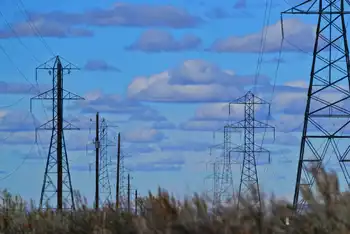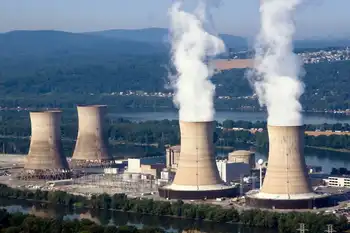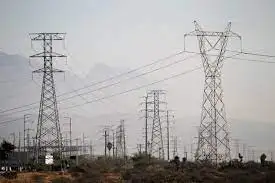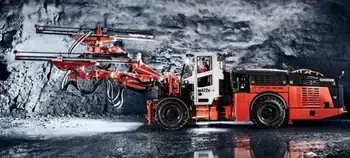Budget, schedule trouble kills reactor project
By National Post
NFPA 70e Training - Arc Flash
Our customized live online or in‑person group training can be delivered to your staff at your location.

- Live Online
- 6 hours Instructor-led
- Group Training Available
A pair of new reactors, dubbed MAPLE-1 and MAPLE-2, were to have been put into service in 2000 to take over the job of medical isotope production from the 50-year-old National Research Universal (NRU) reactor, whose shutdown late last year sparked a medical and political crisis.
But now, eight years behind schedule, with a budget that has ballooned from $140-million to $300-million or more and with no prospects of solving the technical hurdles that have bedevilled the project, AECL, with the government's backing, finally pulled the plug.
"This is a good business decision. This is the right decision for the Canadian taxpayer, it is the right decision for AECL, and it is the right decision for the medical community," Natural Resources Minister Gary Lunn said in the House of Commons.
An energy industry lobbyist, speaking on condition of anonymity, said the failure of the MAPLEs is a black eye for AECL and will be singled out by its international competitors.
"This is terrible news for Canadian technology," said the lobbyist.
Liberal MP Omar Alghabra agreed:"I think it'll have great impact, negative impact on their reputation."
AECL's chief executive officer Hugh MacDiarmid said he anticipates his company's competitors and critics will say these things about the MAPLE failure but he does not believe it will affect AECL's commercial business, selling CANDU reactors for electricity generation.
"The MAPLEs project was literally at the frontier, the first of its kind," said Mr. MacDiarmid. "To suggest that the outcome of this project somehow reflects negatively on our ability to deliver a CANDU reactor... I don't connect those dots."
The shutdown of the MAPLEs will put new pressure on AECL engineers to find ways to keep the NRU reactor functioning.
The NRU, believed to be the oldest in the world, first went into service in 1957 and now produces most of the medical isotopes used in Canada and half of the global supply of isotopes.
A shutdown of the NRU, forced upon it late last year by the federal nuclear regulator which was acting on safety concerns, prompted a medical and political crisis when doctors could no longer receive a steady supply of the isotopes, used to diagnose and treat patients in Canada and around the world with cancer and other diseases. Isotopes have a short shelf life and must be used within days of their production.
The NRU was put back into service in February and continues to produce isotopes. It is licensed to do so until 2011.
Mr. Lunn said the decision to shutter MAPLE would not threaten isotope production but neither he nor AECL officials could say what project, if any, will succeed MAPLE as a replacement for the NRU. MAPLE is an acronym for Multipurpose Applied Physics Lattice Experiment.
"I can't give you anything definitive as to where we're going to be 10 years from now," said Hugh MacDiarmid, who was installed as AECL's chief executive officer in January.
Long-term planning for AECL is difficult right now because it is undergoing a strategic review, ordered by Mr. Lunn, which could lead to the partial or complete privatization of the Crown corporation.
"We are committed to ensure that the medical community has their adequate supply of isotopes," Mr. Lunn said. "The current reactor will continue to produce them. It's a marvellous piece of technology. And it's operating safer than it ever has been before in its entire history. This decision (to shelve the MAPLEs) that we made today is about good governance, good management. It has no impact on the production of isotopes."
But Mr. Lunn's political opponents are not prepared to accept that.
"It's hard to take them at their word," said Mr. Alghabra, the Liberal's natural resources critic. "I think I'll be forgiven for being skeptical and raising these issues. I think all Canadians... who suffered because of the shortage earlier this year will join me in raising these questions."
NDP MP Libby Davies said: "I think there's a huge public policy question here in terms of why hasn't the planning been done to ensure that there is a facility and a renewal in terms of being able to provide these medical isotopes."
AECL's board of directors decided to shut down work on the MAPLEs at a meeting in late April shortly after the latest round of tests on one of the reactors failed to produce the desired results.
It's not clear just how much the MAPLEs will have cost the Canadian taxpayer. Sources in the nuclear industry have told Canwest News Service that the final bill will be in excess of $300-million. Reuters reported that it was $500-million. Mr. Lunn, said it was "hundreds and hundreds of millions of dollars over budget."
Mr. MacDiarmid said he could not provide the full costing on the MAPLE project because to do so would violate commercial confidentiality agreements with MDS Nordion Inc., the publicly traded company that buys the isotopes from AECL and distributes them to the medical community.
Whatever money was lost on the MAPLEs, millions more will have to be spent to upgrade the NRU and the facility at Chalk River. The Auditor General, in a recent report, suggested that AECL needed to spend between $600-million and $800-million on the facility at AECL, including improvements to the NRU.
Mr. MacDiarmid agreed that funding would be required to upgrade the NRU in order to win the licence extension but he declined to say how much money would be required.











